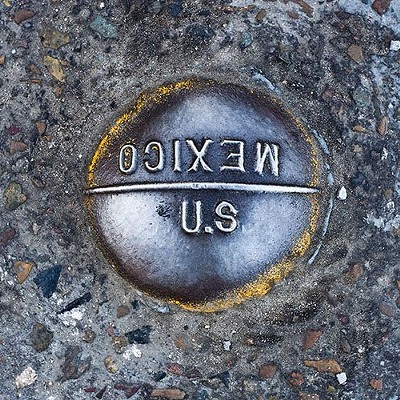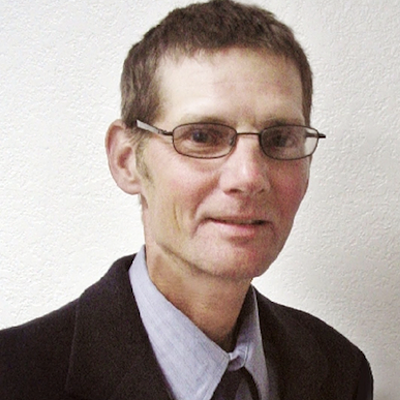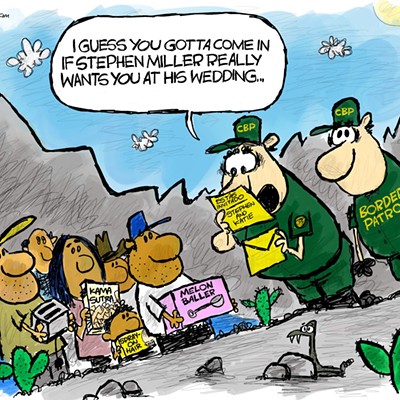It is hardly by accident that Border Patrol agents seem so underfoot: With a surge of attention and funding after Sept. 11--and a recruitment juggernaut that's tripled its manpower to 18,000 since the mid-1990s--this formerly second-tier agency has become a force to be reckoned with.
As the Border Patrol settles into the 21st century, however, it does so with plenty of baggage, from a reputation for ethical haphazardness to being viewed as a lesser partner in federal law-enforcement huddles. Add to that a persisting stove-pipe management structure that straitjackets reform, and you'll find an agency that often seems more anchored in the past than the present.
This, despite the fact that the Border Patrol was folded into the then-newly created Department of Homeland Security in 2003. Or that it now exists under the mantle of Customs and Border Protection, which also includes trade, and air and marine components.
To observers such as Robert Lee Maril, real change for the Border Patrol remains elusive. Maril is a professor of sociology at East Carolina University, and author of Patrolling Chaos: The U.S. Border Patrol in Deep South Texas. The book chronicles two years he spent observing the Border Patrol in McAllen, Texas.
For instance, he says, "bringing the Border Patrol under one umbrella with the DHS has caused as many problems as it's solved. On the positive side, they've gotten more funds than ever before, and more attention. But I still don't think they have the status or respect" of the other agencies
But according to Ephraim Cruz, there are good reasons why Border Patrol management isn't viewed with more respect. For one, he cites the agency's knack for budgetary sleight of hand. A former agent in the Tucson Sector and former legislative candidate, Cruz alleges that sector officials routinely bumped up agents' overtime hours to give the appearance of a manpower shortage.
"I saw it play out every day when I was in the service," says Cruz, who was forced out of the agency in 2007 after publicly raising concerns about the treatment of detainees.
He says such actions not only wound the Border Patrol's integrity, but actually "weaken the government's ability to operate and fund agencies or programs accordingly." How can resources be most efficiently used, he asks, "when you have agencies hoarding taxpayer money, just to prove that they were able to expand--and not necessarily for the better?
"I think agency leadership is effective when they can refine the agency, and do more with less," he says. But instead, he claims that local officials tapped a domino strategy to build their empire. "The sector grew, station by station, through playing with manpower. You build up one station with manpower, and then you create details and send them to another station. Then you say, 'Well, that station doesn't have enough room to accommodate that number of agents.' So you build a new station and get more vehicles for it and so forth. And then you go on down the line."
Cruz served at the Tucson Sector's Douglas Border Patrol Station, which he considers a poster child for such practices. Completed in 2003 at a cost of $23 million, the 53,000-square-foot station ranks among the nation's largest. "But now they've lost a huge number of agents to transfers, because they're no longer needed there," he says. "So after you get operational control of an area, then you still have this enormous station that you have to budget to maintain. That's the way that Chief Aguilar ran the Tucson Sector."
He's referring to David Aguilar, who headed the Tucson Sector for five years, until he was appointed chief of the national agency in 2004. Three years later, 100 leaders of the National Border Patrol Council, a union representing agents, unanimously passed a no-confidence resolution against Chief Aguilar. Among other things, they condemned the chief for focusing more on the quantity of new agents, rather than the quality of those recruits. According to a council poll, 93 percent of rank-and-file agents supported that resolution.
Meanwhile, the current number of agents may strain the connection between need and want. Although Tucson Sector apprehensions are down 19 percent in the first three months of this fiscal year--which began Oct. 1--over the year before, "We're actually adding more agents" says sector spokesman Mike Scioli, who pegs the current headcount at 3,452. Though he won't disclose where in the sector those agents are deployed, he does note that "the action in Douglas right now is hot."
Manipulated or not, more buildings and machinery and manpower may not alter the Border Patrol's fundamental flaws--or assure it an equal place at the governing table, says Maril.
Still, he calls that regrettable, since it does boast the hands-on experience other agencies lack. "I would hope that the Border Patrol would be treated more as an equal partner in the relationship," he says, "and that their expertise would be recognized as being a valuable asset to Homeland Security."
He points out that those other agencies--Customs and the former Immigration and Naturalization Service, now also part of the DHS--have always viewed the Border Patrol as a lesser player because of its provincialism and mismanagement.
"For most of the Border Patrol's history, up until Sept. 11, it was basically ignored," Maril says. "It was the stepchild of federal law-enforcement agencies. And I think that reputation is still with it."
But Border Patrol spokesman Jason Ciliberti disagrees. "I don't see us as being any sort of resented stepchild," says Ciliberti, speaking from agency headquarters in Washington, D.C. "We as an agency have received the lion's share of funding from DHS. I think if you go back and look at the numbers, the Border Patrol has been riding pretty high on the hog, if you will."
However, Maril suggests that riding high on the hog carries serious drawbacks, from hiring less-qualified agents to adding infrastructure--from buildings to vehicles--that's not necessarily needed.
"It's has been a real problem and will continue to be a problem until they get things sorted out," he says. "I just don't think there's been a lot of planning, in terms of the impact of rapid growth."












